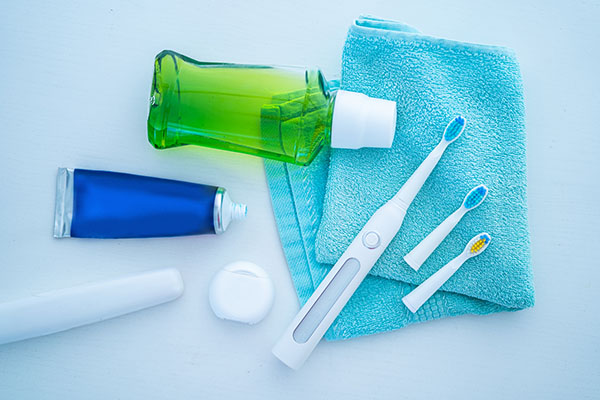 General dentistry practices are focused on the long-term prevention of oral health problems for their patient to help them avoid the need for restorative care, which is more invasive and expensive. One way they help with prevention is by recommending effective toothbrushes and toothpaste.
General dentistry practices are focused on the long-term prevention of oral health problems for their patient to help them avoid the need for restorative care, which is more invasive and expensive. One way they help with prevention is by recommending effective toothbrushes and toothpaste.
A general dentistry guide to choosing a toothbrush and toothpaste
Choosing the right toothbrush and toothpaste can make a big difference in the prevention of cavities, gum disease, and other oral health concerns. This overview offers insights into the most highly recommended toothbrushes and toothpaste that are available over the counter or online for patients to use.
Dentist-recommended toothbrushes
There are numerous types of toothbrushes. Most general dentists recommend using an electric toothbrush with soft bristles. This helps clean teeth thoroughly without placing too much pressure on the gums. However, the recommended toothbrush depends on the patient's specific goals. For example, the recommended toothbrush for a child with braces is certain to be different than one for an adult without braces.
Dentist-recommended toothpaste
The toothbrushes and toothpaste that a dentist recommends depend upon the status of the patient's health, specific risks they have, and the patient’s goals. For example, a patient with good oral health and a low risk of gum disease or cavities and who wishes to brighten their smile may benefit more from whitening toothpaste, whereas someone with weakened enamel may need a gentler, more restorative toothpaste. Most dentists recommend a toothpaste that contains some level of fluoride as it helps to strengthen the enamel.
It is important to discuss the specific type of toothpaste your dentist recommends with them specifically as they may have a different recommendation based upon your needs and goals.
How to brush your teeth properly
It is also important to brush the proper way. This should involve brushing with the toothbrush at a 45-degree angle to the gums and in small strokes (about tooth-wide). It is best to spend approximately 30 seconds per quadrant of the mouth (four quadrants), so two minutes minimum for each brushing session. Avoid scrubbing the gums too hard as doing so could damage the gums and lead to gum recession over time.
Additional oral care tips
Mouthwash and flossing should also be a part of every patient’s daily oral care routine. Be sure to speak with a dentist about how often to use mouthwash and floss and what mouthwash and floss are best to use. Check-up visits with a general dentist every four to six months can also help to reduce the risk of oral health concerns.
Schedule a general dentistry check-up with us today
Once our team has had an opportunity to examine the condition of your oral health and discuss your specific goals, we will be able to make toothbrush and toothpaste recommendations tailored to your needs. We encourage you to call our friendly and professional team today to schedule a general dentistry check-up.
Request an appointment or call Culebra Family Dentistry at 210-787-1554 for an appointment in our San Antonio office.
Related Posts
Regular general dentistry visits can help maintain your dental health. This can apply to your family as well. Spotting dental issues early can improve your dental health. If you want to know why general dentistry can ward off future dental problems, here are the details.Preventive general dentistry starts at an early age. Bringing a child…
General dentistry recommends brushing twice daily and flossing once per day to protect your teeth against common dental problems like gum disease and tooth decay. Bacteria in the mouth can cause both issues.Oral bacteria feast on sugars left in the mouth after meals, forming plaque and acids that damage teeth. Plaque is the film that…
A general dentistry practitioner handles all types of cavities, even those that form between the teeth, medically known as interproximal cavities. These are caused by the erosion of the enamel, the tooth's protective outer covering. Although it is the strongest portion of the body, the enamel is continually assaulted by acids produced by oral bacteria…
